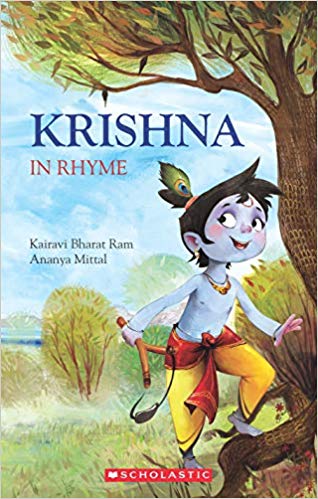“Krishna in Rhyme”

Krishna in Rhyme is a fabulous retelling of the story of Krishna by Kairavi Bharat Ram and Ananya Mittal, published by Scholastic India. It is in couplets. Ishan Trivedi’s sumptuous illustrations fit so beautifully with the text, making the reading experience magical. Gift it now. Gift it in Diwali hampers. It is a book for children and adults to read, whether already familiar with the stories or not, is immaterial.
He is always remembered for the fun he had,
For being a playful god, beyond the good and the bad.
He represents the child in us, who enjoys life and is free,
He’s the balance between fun and responsibility.
He taught us that to your fate you are bound,
This idea’s called karma, what goes ’round comes around.
The Gita is perhaps his most famous speech,
In this all about duty and dharma he does teach.
When you do what you must, things will always be okay,
Following your heart will never lead you astray.
We hope this epic story you all have understood,
Remember this forever: evil never beats good.
26 August 2019





